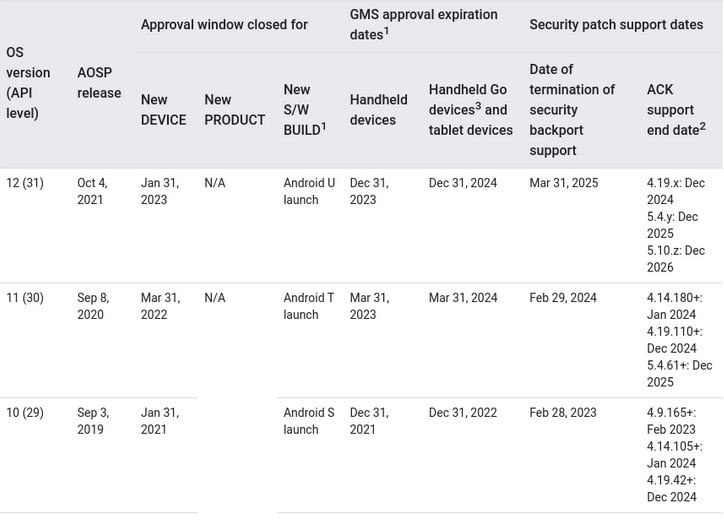The supposed public release date for Android 12 is a little bit late compared with its predecessors.
What you need to know
- An internal document hints at a tentative release date for the stable version of Android 12.
- Google's next Android version is likely to roll out to the public in early October, starting with the Google Pixel devices.
- However, the stable Android 12 update might take a few months to reach non-Pixel phones.
The long wait for the stable version of Android 12 might be over three weeks from now. Google is highly likely to release the next version of Android to consumers in early October.
An internal Google document, spotted by XDA Developers' Mishaal Rahman, claims that the company is set to release the source code for Android 12 on October 4 to the AOSP (Android Open Source Project). XDA noted that the AOSP release typically coincides with the day when Google kicks off the public release for a new Android version. Rahman tweeted:
The Android 12 stable update may be released on October 4, as that's when Google plans to release to AOSP. This tentative release date was also mentioned by a 3PL.
A screenshot of the document he shared shows the roadmap for Google's plans to stop approving software builds for devices running Android 10, 11, and 12. More importantly, it also reveals when the search giant releases the source code for Android 12 (alongside the past release dates for the previous two OS versions).
If the date is correct, it might corroborate an earlier clue for the Google Pixel 6 debut. Last week, Google posted some teaser images of its upcoming flagship series on Instagram. A closer look at the clock widgets in the images seems to hint at October 19, so it's possible the Pixel 6 devices will launch two weeks after Android 12 becomes available to the public.
The document also suggests Android 12 is taking longer than its predecessors to launch. For context, Android 10 was released to the public on September 3, 2019 while Android 11 officially launched on September 8, 2020.
That said, one thing is for sure: the next iteration of Android is on the home stretch and will soon hit the recent Pixel phones. However, it's not clear when Android 12 will start trickling into some of the best Android phones from OEMs like OnePlus, Xiaomi, OPPO, and more.
Source: androidcentral
